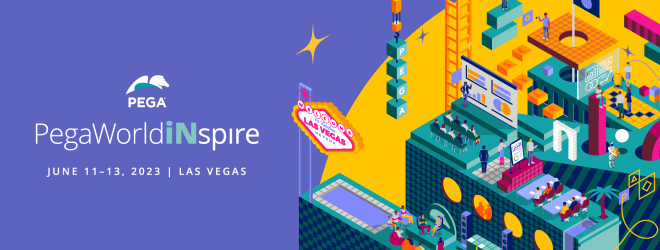
The state of customer engagement: Progress, work to be done and a delicate balance
May 24, 2023
Data silos: The silent killer of great customer experience
June 2, 2023Customer experience (CX) leaders will become the engagement quarterbacks of the future – Interview with Mike Murchison of Ada
Today’s interview is with Mike Murchison, co-founder and CEO of Ada, a leading customer service automation provider. Mike joins me today to talk about how the conventional customer experience playbook is outdated, why brands should be talking to their customers more as they grow (not less), a view on the future of customer experience, what service and support teams will do in the future and how CX leaders are likely to be the quarterbacks of the future.
This interview follows on from my recent interview – There’s no point having a fast bike, if you don’t know how to ride it – Interview with Jerry Haywood of Boost.ai – and is number 467 in the series of interviews with authors and business leaders that are doing great things, providing valuable insights, helping businesses innovate and delivering great service and experience to both their customers and their employees.
NOTE: A big thank you goes out to the folks at Pega for sponsoring my podcast this month.
We are fast approaching PegaWorld iNspire which is Pega’s annual conference that will be held at the MGM Grand in Las Vegas, NV, from June 11th to 13th.
This year it will be an in-person event, for the first time in four years, and will bring together experts and industry leaders to demystify technologies like generative AI and intelligent automation
They will also illustrate how enterprises can practically apply these technologies to turbocharge productivity, improve low-code app development, and optimize customer engagement.
Check out PegaWorld.com to find out more and, hopefully, I’ll see you there.
Here are the highlights of my conversation with Mike:
- Ada is on a mission to help businesses automatically resolve the greatest number of customer service inquiries with the least effort.
- The conventional customer experience playbook is outdated because it results in most brands pursuing a strategy of interacting with the customers less and less as their company grows.
- We think that firms should be talking to their customers more rather than less as they grow.
- The highest quality products almost bestow ownership on their customers where their customers feel like the product or the service is theirs.
- Many VPs of Customer Service or Chief Customer Officers say that they are speaking to their customers less, the bigger they get. That’s because customer service is a cost center, and they are personally incentivized to reduce their customer contact every year.
- However, the dominant customer experiences of the future are going to come from a strategy in which you’re craving customer conversations, not avoiding them.
- The definition of customer service goes far beyond reactive support. It needs to extend into a much more consultative, much more proactive experience where my product may be working perfectly, but my use of it could be improved, for example.
- It’s not just about reactive stuff, but it’s about support across the whole life cycle.
- We’re gonna see a lot more of those proactive delightful experiences as businesses start to pursue strategies that are really antithetical to the current ones.
- Mike’s view on the future of customer experience:
- 1. The customer service experience of the future is instant. That means no waiting. The average American today spends something like 40 days of their life on hold.
- 2. It will take place in any channel of your choice in any language of your choice at any time of day of your choosing. The perfect customer service experience is one in which you dictate it as the consumer, it’s much more accessible.
- 3. The perfect customer service experience is highly personalized and deeply integrated. What that means to me is that the company has perfect memory.
- As humans, we are accustomed to compromise, and compromise exists in our day-to-day life. But, the economics of AI completely challenge this notion that humans are going to have to compromise with regard to the experience they receive from businesses.
- Paul Greenberg: It’s not about the channels, it’s about the conversation, it’s about the engagement, it’s about the interaction, it’s about the experience that we want to deliver, irrespective of what channel you’re on.
- I firmly believe that the future of customer service is agentless. That’s not to say that there are not going to be customer experience professionals. I think there’s gonna be many more customer service and customer experience professionals than there are today.
- The traditional customer service agent role is going to fundamentally change.
- Their role is going to evolve such that customer service agents are going to increasingly play a role where they’re orchestrating and coaching the AI, so you’ll see the shift from reactive customer support to proactive AI coaching. We see our clients doing this today where they’re starting ACX teams (automated customer experience teams or AI customer experience teams).
- And, they’re promoting some of the top performing customer service reps into this team where they’re performing AI coaching duties often inside a software deployment process within their companies.
- I really believe that if you’re working in customer service today, you are, in many ways, are akin to an emergent programmer or software developer in 1992 at the dawn of the internet.
- Back then, a programmer was not a coveted position. But now, we see that software developers are now sort of viewed as having the highest impact of anyone in the company.
- The same thing is true, I believe, of customer service agents today. When you shift from reactive customer support to an AI orchestration and coaching skillset, these customer experience leaders start to have way more data, and they start to become the hub of the company that other departments go to inform them on what they should build next, where should we take the company, what decisions should we make etc.
- As a result, the leaders of those teams will become like the quarterbacks of the engagement strategy of the future.
- This is going to reach a tipping point when the average AI experience is automating 70% of conversations with high quality. That’s likely to happen in the next 2-3 years.
- I used to think that the product people knew the customer best, and I now firmly believe that it’s the customer service and customer experience leaders and agents in an organization that understands the customer best, and they are woefully under-leveraged in most businesses.
- Mike’s best advice:
- Treat A I like you’re onboarding a new employee. To do that, I think you need to do three things:
- 1. You need to teach your A I to read. That means getting all your knowledge and documents in order that explain how to use your product or service, your knowledge bases and your manuals.
- 2. Teach your AI to take action. That means getting all of your APIs in order.
- 3. Teach your AI to access the points of expertise across your organization. That means being really attuned to who are the experts who hold really specialized knowledge inside your company. Who’s the person you go to when there’s a payment issue that only they can solve because it’s too complicated to write out on a knowledge-based article.
- Treat A I like you’re onboarding a new employee. To do that, I think you need to do three things:
- If companies do those three things and they employ the perspective of onboarding their AI, like they onboard a new employee, they’re gonna be really set up to succeed in this next phase.
- Mike’s Punk CX word: Ambition.
- Mike’s Punk XL brand: Your local coffee shop.
- Check out Andy Weir’s book: Project Hail Mary.
About Mike
 Mike Murchison is co-founder and CEO of Ada, the world’s leading customer service automation company. Since 2016, Ada’s AI-powered platform has automated more than 4.7 billion customer interactions for brands like Meta, Verizon, AirAsia, Yeti, and Square. Recognized by Forbes 30 Under 30 and EY’s Entrepreneur of the Year program, Mike is also a Fellow at Creative Destruction Lab and volunteer for VentureKids, a program for Canada’s underserved youth.
Mike Murchison is co-founder and CEO of Ada, the world’s leading customer service automation company. Since 2016, Ada’s AI-powered platform has automated more than 4.7 billion customer interactions for brands like Meta, Verizon, AirAsia, Yeti, and Square. Recognized by Forbes 30 Under 30 and EY’s Entrepreneur of the Year program, Mike is also a Fellow at Creative Destruction Lab and volunteer for VentureKids, a program for Canada’s underserved youth.
Check out what Ada does, say Hi to them and Mike on Twitter @ada_cx and @mimurchison respectively and feel free to connect with Mike on LinkedIn here.
Image by filterssofly from Pixabay





